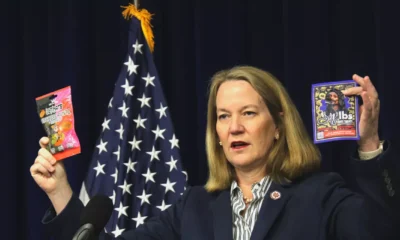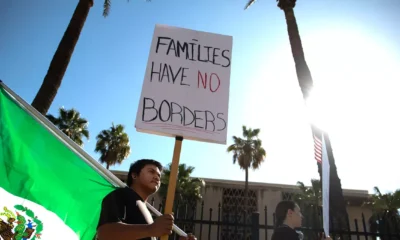2024 election
Arizona’s Tax Burden: Candidates’ Hikes Hit Home for Everyday Citizens, Not Just Corporations

The debate over tax policies has emerged as a central theme in the ongoing presidential election. Vice President Kamala Harris is advocating for increased corporate taxes to support the middle class, while former President Donald Trump aims to assist working families through tariffs.
Each candidate asserts that their tax strategies will primarily burden corporations or foreign entities. However, the reality indicates that Arizonans would face significant costs as a result.
Harris’s proposal includes raising the federal corporate tax rate from 21% to 28%. With Arizona’s existing corporate tax rate set at 4.9%, this increase would elevate the overall corporate tax burden in the state to 32.9%. This rate would surpass those of Mexico (30%), China (25%), and the global average of 23.6%.
Research consistently shows that corporate taxation can stifle economic growth. In the quest to attract businesses, regions around the world have lowered their corporate tax rates since the 1980s.
Within the United States, states like Nevada and Texas, which completely eliminate corporate income taxes, present an appealing alternative for companies. An increased corporate tax at the federal level could make these neighboring states more desirable for businesses operating on slim margins.
Additionally, higher corporate taxes do not just affect the companies but also impact employees’ earnings. Research indicates that approximately 60% of corporate taxes may ultimately be shouldered by workers, often in the form of reduced wages. Even conservative estimates suggest that around 25% of the tax burden is passed onto labor.
Should the corporate tax rate reach 28%, individual workers in Arizona could experience annual salary reductions of up to $527.
On the other side of the aisle, Trump’s tax policy revolves around tariffs. He has proposed a sweeping 20% universal tariff along with significantly higher tariffs on imports from China and Mexico. The potential implementation of these tariffs would represent the highest rates seen since the Great Depression.
While Trump’s team insists that foreign countries will absorb these costs, taxpayer experience suggests otherwise. Previous tariffs have led to sluggish growth, elevated prices, and diminished incomes for Arizonans during Trump’s earlier trade initiatives. His latest proposals promise further complications.
Both candidates are focusing on revenue alongside tax cuts aimed at families. Nevertheless, tax cuts require funding, and the proposed methods to raise this money pose significant risks, potentially negating the benefits of tax relief initiatives.
To effectively support families and businesspeople through the tax mechanism, more sustainable solutions are necessary. For instance, policies that eliminate excessive tax credits, such as those from the Inflation Reduction Act, may yield less distortion than broad tax increases or tariffs.
It is essential for Arizonans to understand the practical implications of the candidates’ tax agendas on their personal finances, emphasizing the need for more thoughtful and effective tax solutions.

















